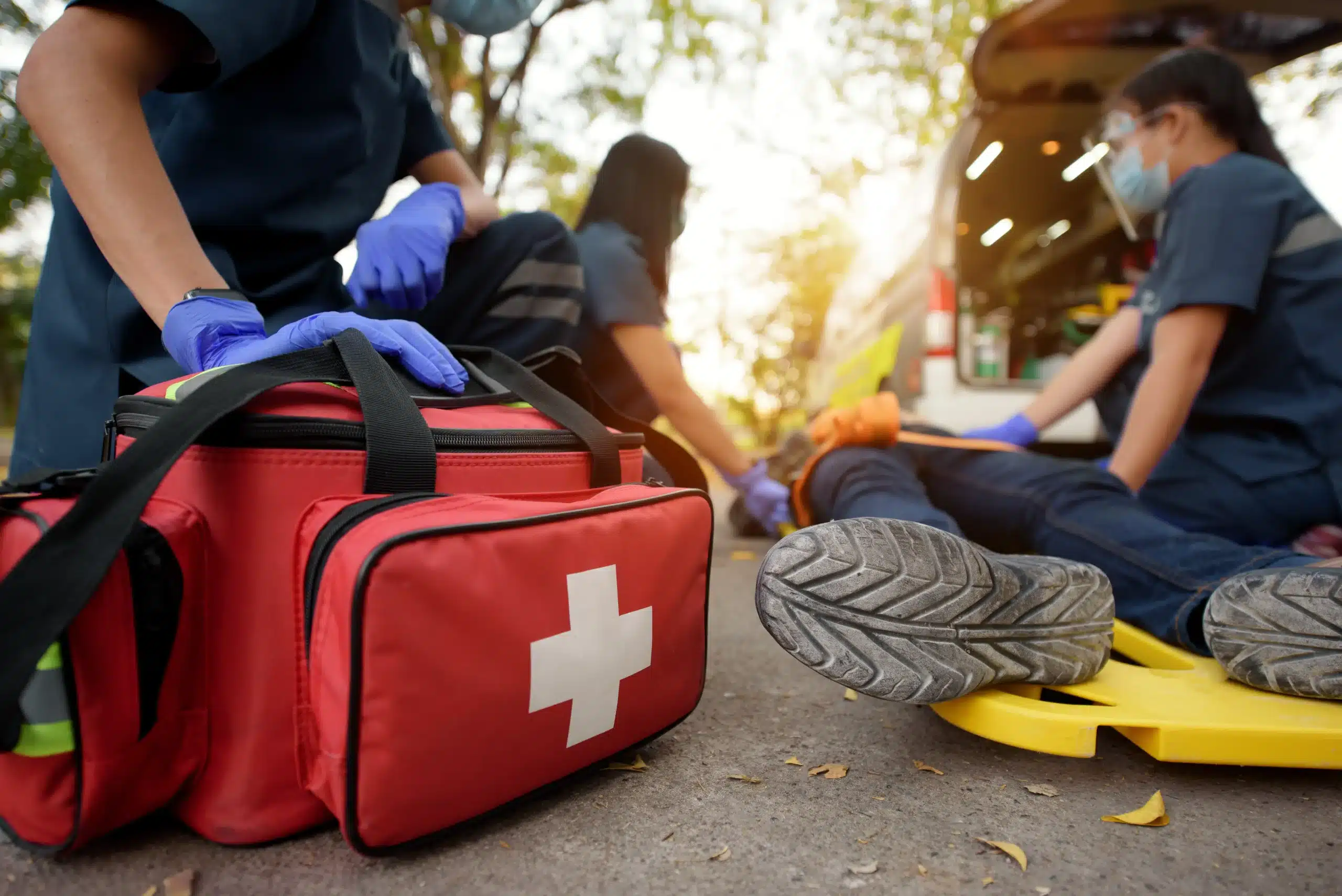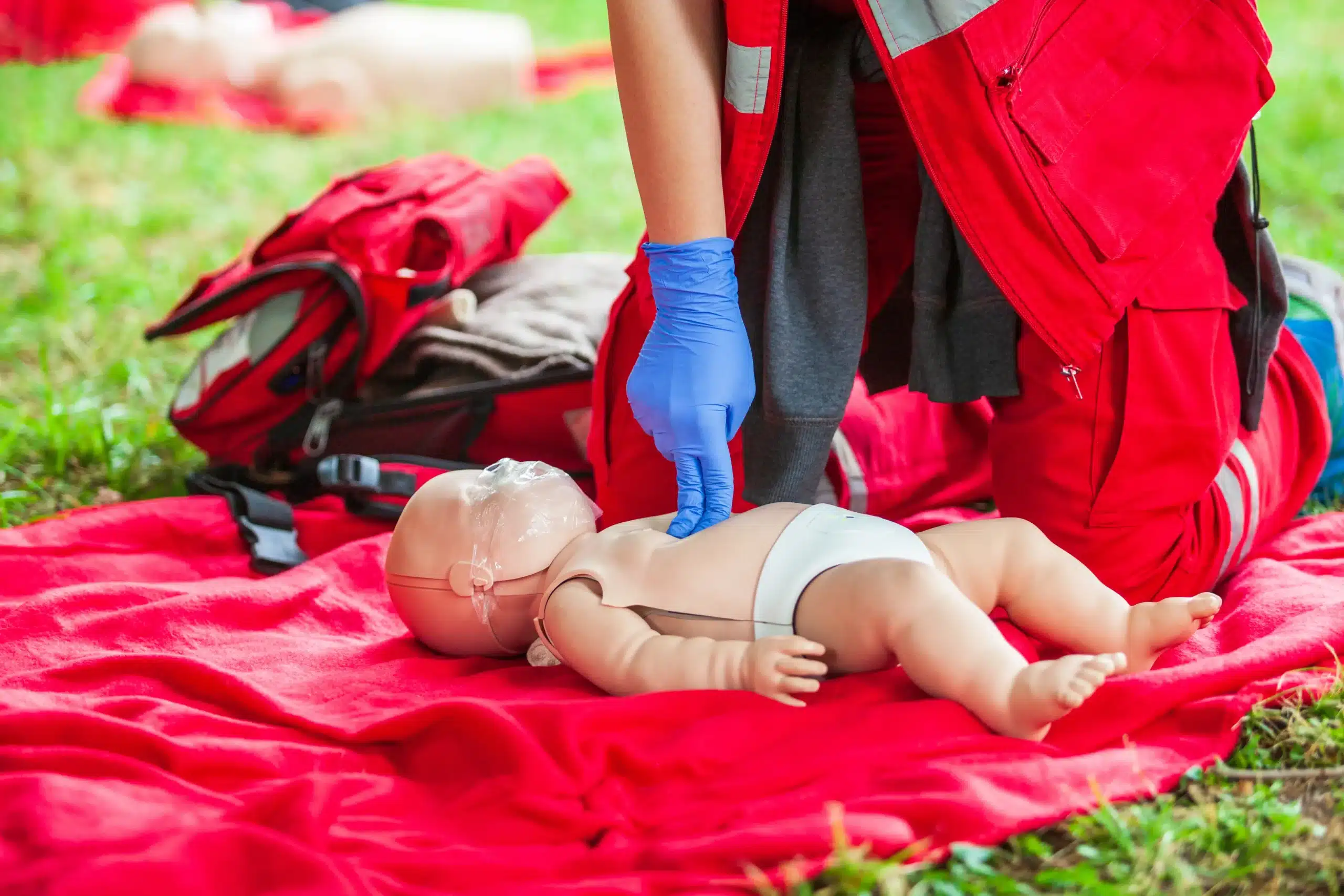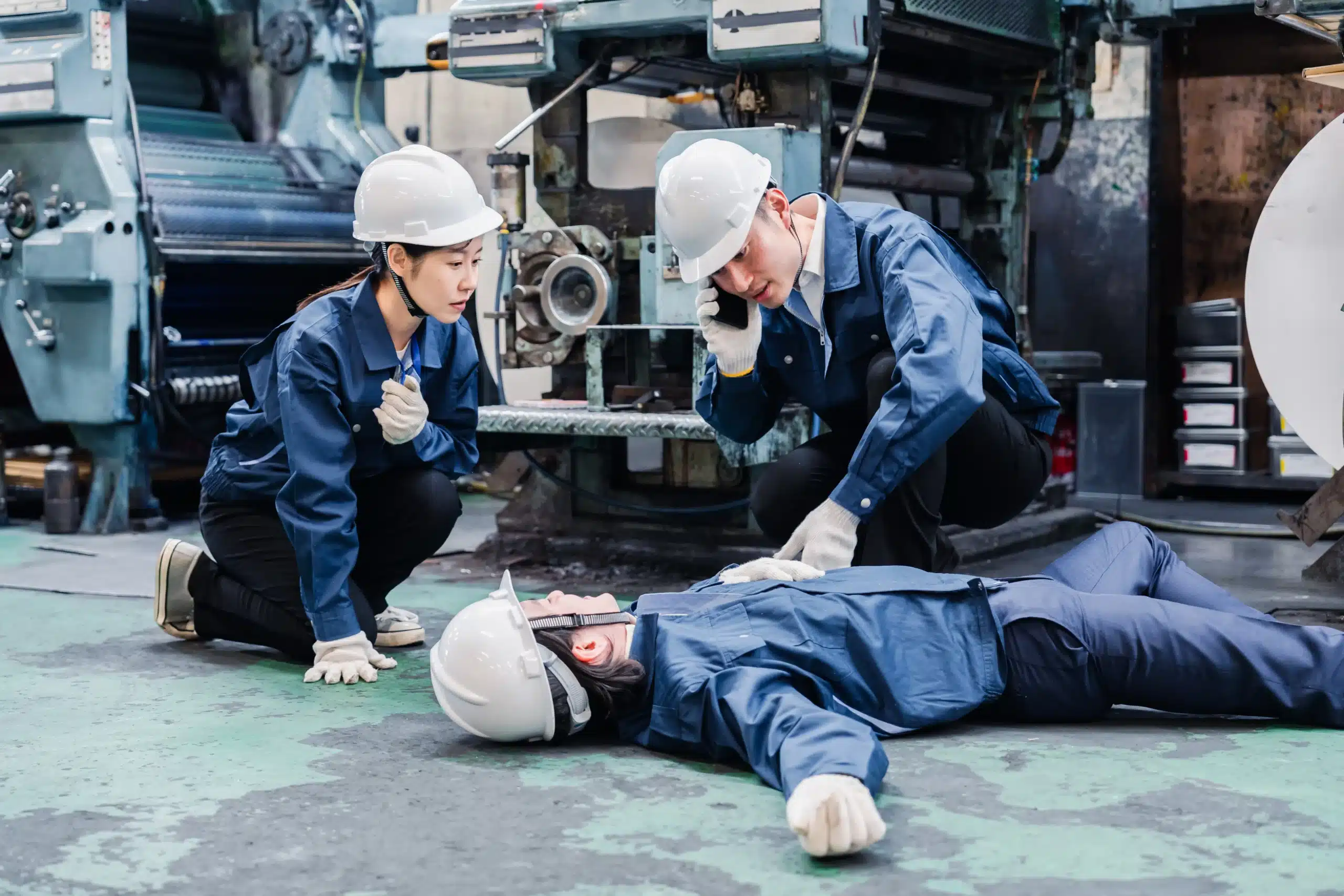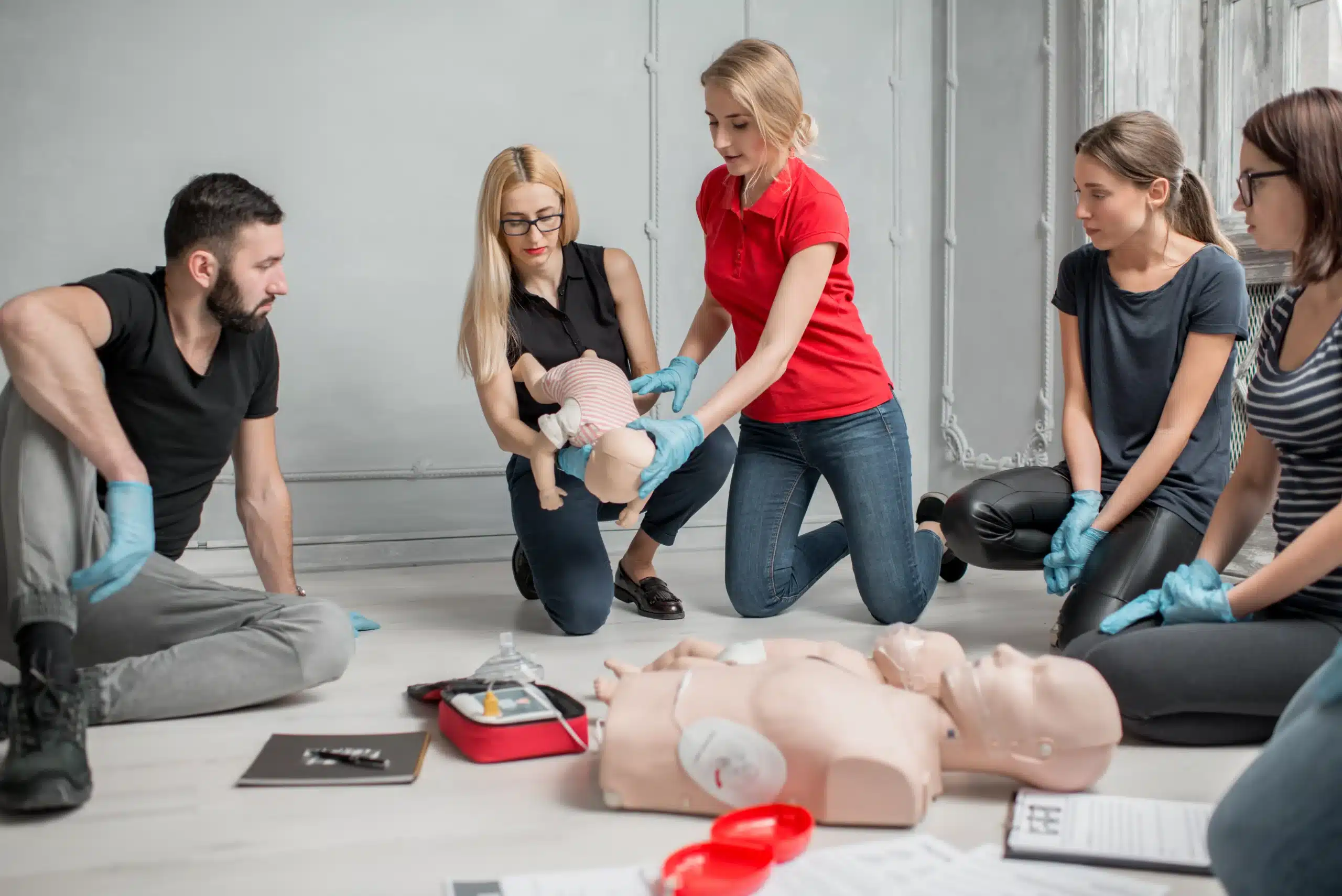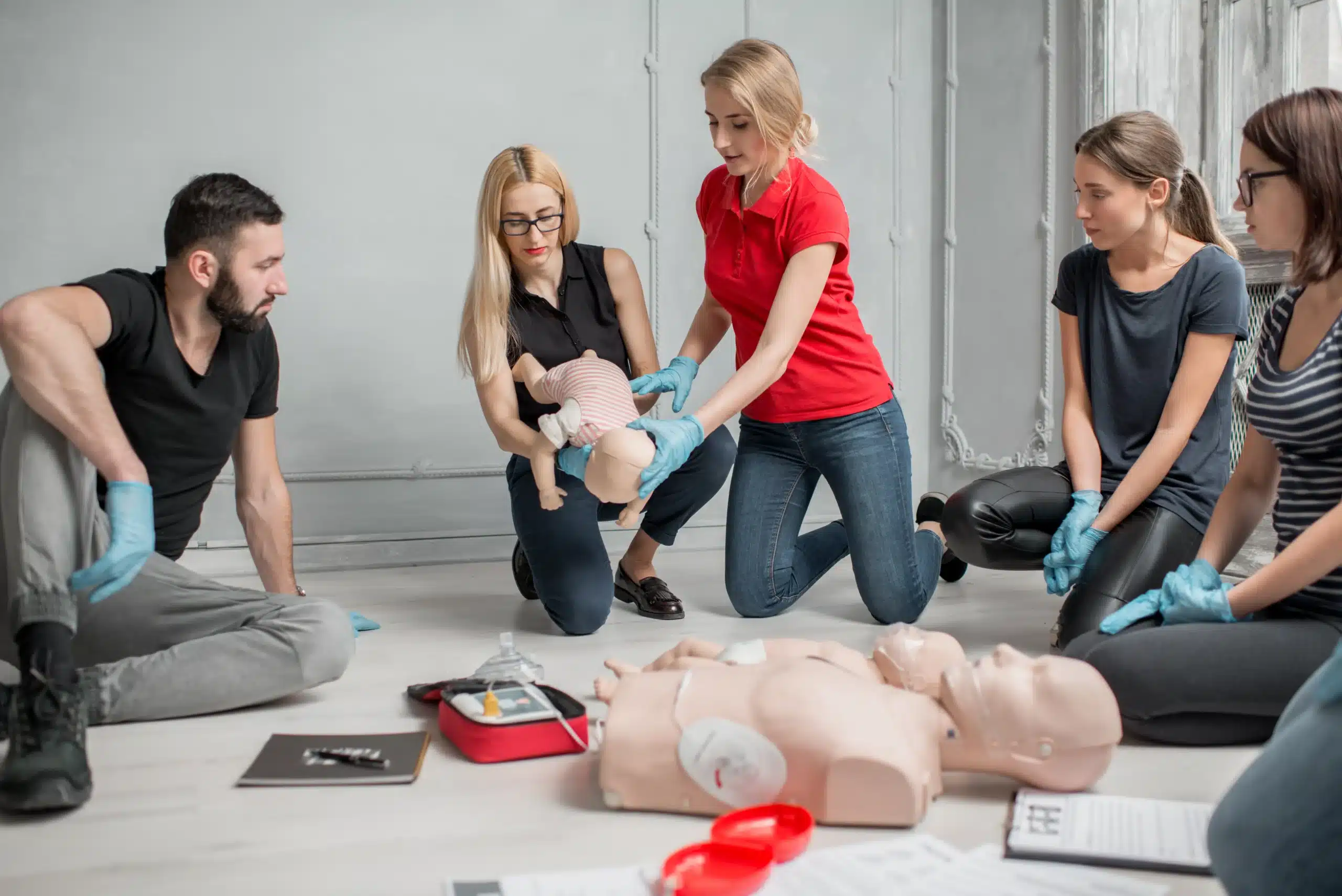Working with children is a rewarding experience, but it also comes with a unique set of responsibilities. As caregivers, we want to ensure we’re prepared for anything, especially when it comes to their health and safety. If you’re a healthcare provider, educator, or anyone working with kids in Milpitas, understanding Pediatric Advanced Life Support (PALS) is crucial. This specialized training goes beyond basic CPR, equipping you with the skills to handle life-threatening emergencies in infants and children. This post explores the importance of PALS, what the training entails, and where to find pediatric advanced life support in Milpitas. We’ll also discuss how PALS empowers you to confidently respond to critical situations, ensuring the well-being of the children in your care.
Key Takeaways
- PALS certification equips you with essential pediatric life-saving skills: Focus on finding a course that offers hands-on practice and covers key areas like airway management, CPR, and team communication.
- Choose a PALS course that fits your needs: Consider factors like instructor experience, course format (online, in-person, or blended), and flexible scheduling options when making your decision.
- Maintain your PALS skills through ongoing learning: Stay up-to-date with the latest guidelines and recertify every two years to ensure you’re always prepared for pediatric emergencies. Utilize resources like refresher courses and online materials.
What is Pediatric Advanced Life Support (PALS)?
What is PALS and why is it important?
Pediatric Advanced Life Support (PALS) certification is essential for healthcare providers caring for children. It equips medical professionals with the skills to handle life-threatening situations kids might face. Think of PALS as a specialized toolkit for pediatric emergencies. A PALS certification ensures providers can confidently manage these critical situations. This specialized training focuses on rapid assessment, effective intervention, and continuous monitoring to improve outcomes in pediatric emergencies. For healthcare professionals working with children, PALS is a must-have. You can find more information on the importance of PALS certification for healthcare providers.
Key skills and techniques taught in PALS
PALS courses cover essential skills, including airway management, chest compressions, and medication dosages specifically for children. Effective team communication is also key, as coordinating efforts during emergencies is critical. The training emphasizes continuous reassessment, allowing providers to adapt as the situation changes. These skills are essential for anyone involved in managing pediatric respiratory or cardiovascular emergencies, including cardiopulmonary arrest. This resource offers a deeper look at essential PALS skills for pediatric emergencies.
Common challenges applying PALS skills
One of the biggest hurdles for healthcare providers seeking PALS certification is finding time to train. Balancing demanding work schedules with course requirements can be tough. Another challenge is mastering post-resuscitation care. Many providers focus on the immediate response but may overlook the crucial steps after resuscitation, which significantly impact patient recovery. Understanding these challenges can help you prepare and maximize your PALS training. This article highlights the top challenges healthcare workers face during PALS certification.
Find PALS Certification in Milpitas
Ready to earn your Pediatric Advanced Life Support (PALS) certification? Milpitas offers several options for high-quality training, whether you prefer online learning or in-person instruction. Let’s explore some of the leading providers and what they offer.
American Heart Association (AHA) Courses
The American Heart Association (AHA) sets the standard for PALS training. You can find official AHA PALS courses right here in Milpitas, ensuring you receive the most up-to-date and recognized certification. These courses cover essential knowledge and skills for pediatric emergency care. Successful completion earns you an AHA PALS certification card, valid for two years.
Safety Training Seminars
Safety Training Seminars is a woman-owned AHA Training Center conveniently located in Milpitas. They offer a comprehensive range of AHA courses, including BLS, ACLS, PALS, CPR, and First Aid. With courses running every day of the week, you’ll easily find a schedule that works for you. Their focus on quality instruction and flexible scheduling makes them a popular choice.
Superior Life Support
Looking for an online option? Superior Life Support offers a convenient online PALS course designed for healthcare professionals who manage pediatric respiratory and cardiovascular emergencies. You’ll complete the online portion at your own pace and then schedule a hands-on skills check to receive your AHA PALS course completion card, also valid for two years.
Emergency & Health Training Center
The Emergency & Health Training Center provides a blended learning approach to PALS certification. This program combines online learning through HeartCode PALS with an in-person skills session led by an AHA PALS Instructor in Milpitas. This hybrid model lets you learn the material online and then practice your skills in person.
Course structure, duration, and cost
PALS courses typically involve an online component and a hands-on skills session. The online portion usually takes about 3-4 hours to complete, while the skills check takes about 30-40 minutes. The total cost, including online training, skills testing, and certification card, is approximately $290. Check with your chosen provider for specific pricing. More information on AHA PALS courses in Milpitas is available, including cost details.
Online vs. in-person training
Choosing between online and in-person PALS training depends on your learning style and availability. Online courses, like those from Superior Life Support, offer flexibility and self-paced learning. If you prefer hands-on instruction and interaction with an instructor, a traditional in-person course or a blended learning option might be better. Programs like HeartCode Complete let you complete the cognitive portion online at your own pace before scheduling your in-person skills check.
Master PALS: Training and Practice
So, you’re ready to pursue your PALS certification—great! This section covers what to expect from a quality PALS course and how to maintain your skills. Knowing what makes a strong program will help you choose the best fit for your needs.
Instructor qualifications
Experienced instructors are key to a successful PALS course. Look for courses led by instructors with extensive backgrounds in pediatric emergency care. These instructors, often healthcare professionals themselves, bring real-world experience to the classroom, providing valuable insights and practical advice. They should also be certified by the American Heart Association (AHA) as PALS instructors, ensuring they meet the AHA’s rigorous training standards. This certification signifies their expertise in teaching the core concepts and skills necessary for effective pediatric advanced life support.
Course content and learning outcomes
A comprehensive PALS course covers a range of essential topics, including pediatric assessment, airway management, and CPR. You’ll learn how to recognize and respond to respiratory distress, shock, and cardiac emergencies in infants and children. A good program will also emphasize effective team dynamics and communication—crucial skills in high-pressure emergency situations. Upon successful completion of a PALS course, you’ll receive certification from the AHA, valid for two years. This certification demonstrates your competence in providing advanced life support to pediatric patients.
Hands-on practice and simulations
Hands-on practice is essential for mastering PALS skills. Look for courses that incorporate realistic simulations and case studies. These experiences allow you to apply your knowledge in a safe, controlled environment, building confidence and competence. Simulations also offer opportunities to practice teamwork and communication, preparing you for real-world pediatric emergencies. This practical application is invaluable for solidifying your understanding of PALS protocols and procedures.
Continuous learning and recertification
PALS certification is valid for two years. To maintain your skills and stay up-to-date with the latest guidelines, you’ll need to recertify. Regular practice and continuing education are crucial for providing the best possible care to young patients. Consider refresher courses or workshops to reinforce your knowledge and refine your skills. Staying current with PALS guidelines ensures you’re equipped to handle the ever-evolving challenges of pediatric emergency care.
Resources for skill improvement
Several resources can help you improve and maintain your PALS skills. The RQI program offers a flexible and convenient way to renew your PALS certification. Online resources, such as practice tests and case studies, can also help you stay sharp. Staying proactive about your training ensures you’re always prepared to provide the highest quality care in pediatric emergencies. This ongoing commitment to professional development will benefit both you and your patients.
Choose the Right PALS Course in Milpitas
Finding the right Pediatric Advanced Life Support (PALS) course is crucial for healthcare providers who want to confidently respond to pediatric emergencies. With several options in Milpitas, it’s important to weigh key factors before deciding.
Factors to consider when choosing a provider
Look for a PALS provider that offers high-quality training and recognized certification. The American Heart Association (AHA) is a respected name in resuscitation training, and their PALS certification is widely accepted. The AHA’s RQI program is a popular choice for medical professionals seeking a modern approach to BLS, ACLS, and PALS certification. Consider whether a provider offers this program. Also research the instructors’ experience and the course format to ensure it suits your learning style.
Benefits of AHA certification
An AHA-certified PALS course in Milpitas offers several advantages. AHA PALS certification is valid for two years and demonstrates your commitment to providing high-quality pediatric care. This certification equips you with the skills to handle pediatric emergencies, ultimately improving patient outcomes.
Flexible scheduling and certification
Balancing work with continuing education can be tough. Look for a provider like Safety Training Seminars that offers flexible scheduling. Courses available on various days and times make it easier to fit training into your schedule. Confirm the provider offers official certification cards upon completion for immediate proof of your qualification.
Cost and packages
Understand the total course cost, including any extra fees. Milpitas CPR Classes offers a comprehensive package for $290, covering the online course, skills testing, and certification card. Compare pricing and inclusions across different providers to find the best value.
Reviews and testimonials
Reading reviews and testimonials offers valuable insights into a course’s effectiveness. Look for feedback on the instruction quality, course content, and overall learning experience. Positive testimonials often highlight the practical application of skills learned and increased confidence. This feedback helps you choose a PALS course that meets your needs and prepares you to provide excellent care for young patients.
Apply PALS Skills and Stay Current
Implement PALS skills in healthcare
Pediatric Advanced Life Support (PALS) certification is essential for healthcare providers involved in pediatric care. It equips professionals with the knowledge and skills to respond effectively to life-threatening emergencies in infants and children. PALS certification classes emphasize simulations and real-life scenarios, building confidence in applying these specialized skills under pressure. This practical approach helps bridge the gap between theory and practice, ensuring healthcare providers can confidently manage pediatric emergencies.
Overcome challenges in pediatric emergencies
One common challenge healthcare providers face is balancing demanding work schedules with the time commitment required for PALS training. Finding a program that offers flexible scheduling options, like weekend or evening courses, can make training more manageable. Milpitas CPR Classes understands these challenges and strives to provide convenient scheduling to accommodate busy professionals. Regularly reviewing PALS protocols and participating in mock drills can help maintain proficiency and improve response times in actual emergencies.
Team dynamics and communication
Effective team dynamics and communication are crucial during pediatric resuscitation. The ILCOR guidelines for PALS highlight the importance of clear roles, concise communication, and coordinated efforts among team members. Practicing these skills in simulated scenarios helps build a cohesive team that can function efficiently during high-stress situations.
Stay updated with PALS guidelines
Staying current with the latest PALS guidelines is vital for providing the highest quality of care. Medical knowledge and best practices are constantly evolving, so regular review and recertification ensure providers remain up-to-date. Maintaining your PALS certification demonstrates a commitment to ongoing learning and ensures providers have the most current skills to respond effectively to pediatric emergencies.
Continuing education in Milpitas
For healthcare professionals in and around Milpitas, continuing education opportunities for PALS recertification are readily available. Safety Training Seminars, a woman-owned AHA Training Center, offers high-quality American Heart Association PALS courses in Milpitas, CA, serving the surrounding communities of San Jose and Santa Clara. They provide a convenient and reputable option for maintaining your PALS certification and staying at the forefront of pediatric emergency care.
Related Articles
- PALS HeartCode Santa Clara: Your Certification Guide – Milpitas CPR Classes
- Pediatric CPR & First Aid Classes in San Jose – Milpitas CPR Classes
- AHA PALS Classes in Milpitas, CA – Milpitas CPR Classes
- CPR, BLS, ACLS, PALS, and First-aid Courses in Milpitas, CA
- Advanced Cardiac Life Support in Milpitas: Find Training – Milpitas CPR Classes
Frequently Asked Questions
What is the difference between PALS and BLS?
While both PALS and BLS teach CPR, PALS (Pediatric Advanced Life Support) focuses specifically on the advanced life support needs of infants and children. BLS (Basic Life Support) provides a foundation in CPR for all ages, but PALS goes deeper into the physiological differences and specialized interventions required for pediatric patients. Think of BLS as the basic toolkit, while PALS provides the specialized instruments needed for pediatric emergencies.
How long does a PALS certification last, and how do I renew it?
PALS certification is typically valid for two years. Renewal involves completing a recertification course, which covers updated guidelines and reinforces essential skills. The RQI program offers a flexible option for recertification, allowing you to complete much of the coursework online at your own pace. Traditional classroom-based recertification courses are also available.
What if I have a busy schedule? Are there flexible PALS course options?
Absolutely! Many providers understand the demands of a healthcare career and offer flexible scheduling options. Look for courses offered on evenings, weekends, or in a blended format that combines online learning with shorter in-person skills sessions. This allows you to fit the training around your existing commitments.
What can I expect during the hands-on skills session of a PALS course?
The hands-on portion is where you’ll put your knowledge into practice. Expect to participate in simulated pediatric emergency scenarios, practicing skills like airway management, CPR, and medication administration. You’ll work with instructors and other participants, mimicking real-life situations to build confidence and competence.
Why is choosing an AHA-certified PALS course important?
The American Heart Association (AHA) is a highly respected organization that sets the standard for resuscitation training. Choosing an AHA-certified PALS course ensures you receive high-quality instruction based on the latest scientific evidence and best practices. AHA certification is widely recognized and demonstrates your commitment to providing excellent pediatric care.
